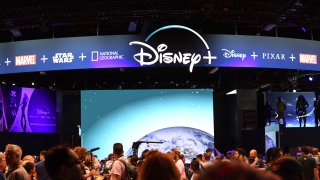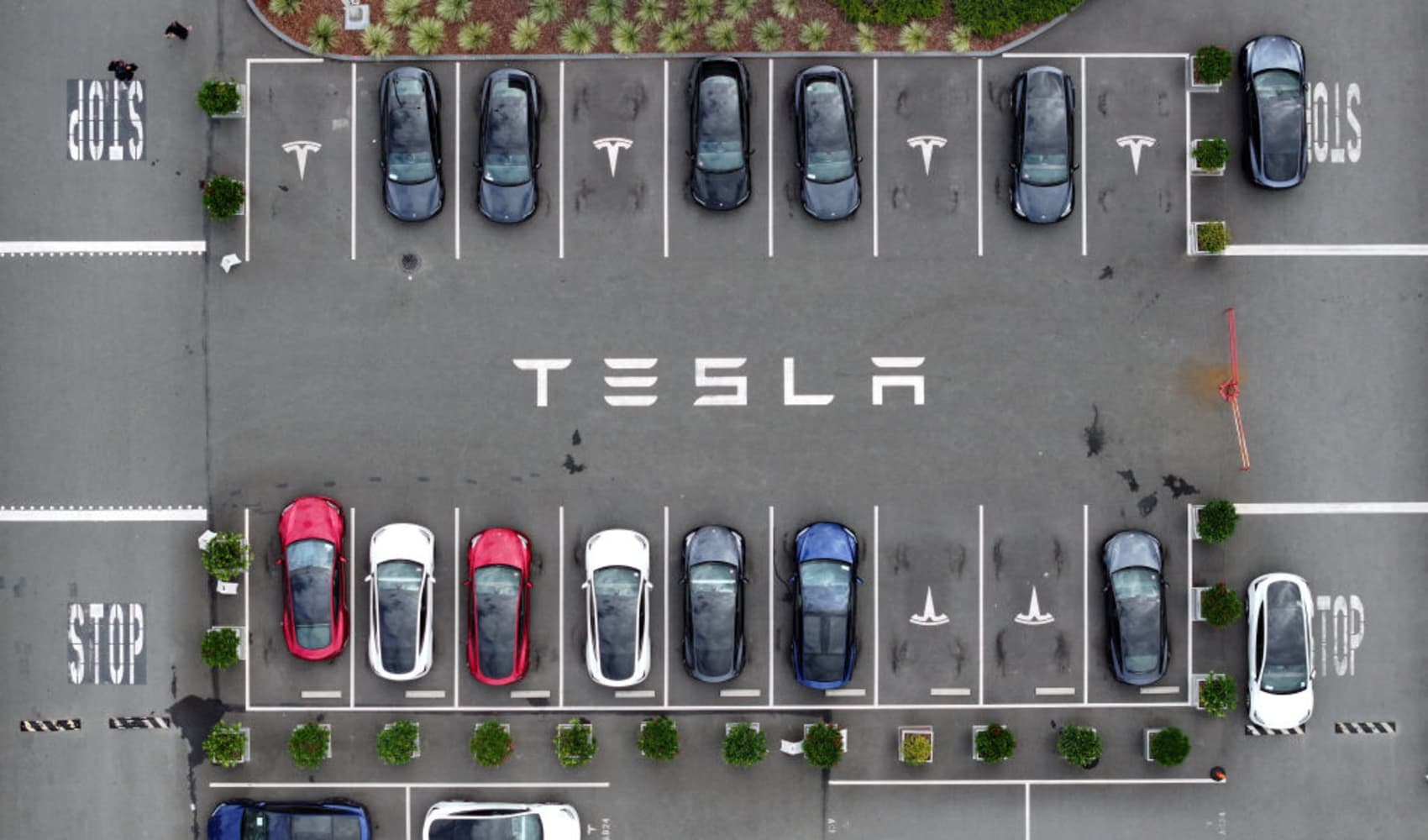
- Disney made several big acquisitions under Bob Iger's leadership, and he says the motivation was building scale in storytelling.
- The threat from the technology giants disrupting the entertainment industry was clear to the outgoing Disney chairman as far back as the early 2000s, though he says the tech industry has become even more dominant than predicted.
- Linear channel consumption will continue to erode, the consumer will continue gain power over the distributor, and scale in digital and IP will be even more critical.
Disney completed several big deals with big personalities during Bob Iger's tenure, including the acquisitions of Steve Jobs' Pixar and 21tst Century Fox assets from Rupert Murdoch.
Recently interviewed by CNBC's David Faber with a backdrop that included a full-scale Millennium Falcon at Disney's "Galaxy's Edge" theme park experience, outgoing Disney chairman Bob Iger said all of his big deals shared a critical narrative element: needing to build scale in both platform and intellectual property in an era of technology disruption.
Get Southern California news, weather forecasts and entertainment stories to your inbox. Sign up for NBC LA newsletters.
"It put us on a path to achieving what I wanted to achieve, which is scale when it came to storytelling," Iger told CNBC.
Being "a successful, effective storytelling engine," is a business model that has been changed by an era of technology disruption. "I've never seen a world that has changed, or is changing, as rapidly as the one that we live in today," Iger said.
As far back as 2005, Iger says he saw a world that was going to change dramatically because of technology. And he thought about how that could impact Disney, and that wasn't only the threat but also the opportunity.
Money Report
"What was very, very clear to me is that technology would provide us the opportunity to tell more stories to more people," he said. "In reality, that scenario of a world in which technology's enabling more storytelling exists today probably even more so," Iger said.
Iger wasn't the only media titan who was thinking along these lines. "Rupert was very focused on the scale that was necessary to be successful," Iger said of his deal with Rupert Murdoch for 21st Century Fox entertainment assets. "As a media company in a new world, particularly with the incursion, if you wanna call it that, of the tech companies getting into the media space."
"He had genuine concerns about how his company was positioned in that marketplace," Iger said. "I know that he did because he expressed them to me when we first sat down."
When Disney completed the Fox deal, Iger says it was through the lens of needing scale to achieve success in the direct-to-consumer digital platform space.
"None of it was viewed as basically a traditional media play," Iger said. We knew that we'd be running the businesses we were buying on traditional platforms with traditional business models. But in terms of the value creation, it was all tied to the growth of digital platforms, direct-to-consumer globally," he added.
The string of major acquisitions were all aligned with developing the capability and the intellectual property to tell stories through technology platforms like Disney+, enabling Disney to reach more people in more markets around the world than ever before with more IP, Iger said.
As the company's Star direct-to-consumer platform expands to international markets, "that couldn't have happened without the Fox assets," he said.
The rise of the technology giants has been even greater than Iger says he predicted, and it will continue to force traditional media companies to think and act more like digital companies. "What we're seeing today in terms of the scale of those companies in the media space, which probably shouldn't surprise us, but the enormity of it all, is still just mind-boggling," he said.
The migration to digital direct-to-consumer forms of entertainment distribution means being in that business at a larger scale is the growth driver, not traditional media platforms, and the continued migration to digital will cause more "erosion of the traditional media platforms," he said.
"You have to follow the technology and the audience that is using that technology," Iger said. "We're raising a generation of people ... who are much more used to the user interface and the navigation and the choice. ... Among the things that I've seen in terms of change in the industry over my tenure in the business is a huge shift of authority from the distributor and the creator to the consumer."
"App-based entertainment in the home is replacing the linear channel consumption in the home. ... it's actually eroding right before our eyes," he said.
The threat of technology disruption isn't new any longer, but it can not be underestimated either, Iger said. "I've used the word incursion before but, you know, the massive growth of new platforms that were coming in completely untethered to any old business model, completely."
"What those companies have achieved in terms of scale and size I think says a lot about the world. We used to talk about Moore's Law and, you know, how basically quickly things were growing. Computational power is one thing. But I think when you look at all of the factors that have enabled technological growth, we probably should have been able to predict back then just how big these companies could become," he said.
Even after all of the deals made during Iger's Disney, there will be more volume of storytelling needed and more competition, and more threats to Disney's continued success.
"We have to continue to evolve," Iger said.
During the interview he noted how streaming storytelling is beginning to develop the influence around the globe that was once only possible through theatrical releases, and he cited the Netflix series "Squid Game" from South Korea as an example of that shift in the balance of global power between big screen and small screen storytelling.
He described the investment Disney is now making in international local television production as being "substantially greater than anything we've ever done before."
"It is an example of what is necessary to achieve not only the [subscriber] guidance but to reach more people in the world that is evolving right before our eyes," he said.
One leadership lesson Iger learned early in his tenure as CEO was to think more like a disruptor than the disrupted, and he says that will remain critical, even for companies of Disney's scale.
"One thing that is very, very clear is that anyone that stands in the way of innovation or adapting to change is gonna create problems, any company, any person. It's just really that important," he said.
Iger noted in his CNBC interview that among the reasons he decided it was time to give up control of the company was a sense he had become too dismissive of outside opinions. "Over time, I started listening less and maybe with a little less tolerance of other people's opinions, maybe because of getting a little bit more overconfident in my own, which is sometimes what happens when you get built up," he said.
"I used to talk about incumbents and insurgents. We were incumbents, they were insurgents. And someone advised me when I became CEO of the company, 'Act like an insurgent not an incumbent.' Because incumbency ... in a world that is changing so much, it's not a winning strategy."






